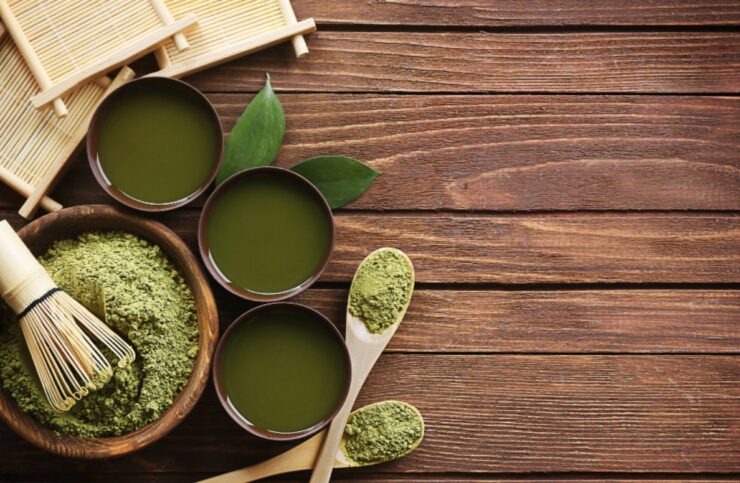Throughout history there have been many food items and beverages that traveled across the globe from the place they were first found. During the era of exploration, and colonization, people started to mix and mash. As they were discovering each other’s cultures and traditions they soon realized that eating and drinking was very different in far corners of the globe. Naturally, they wanted to bring what they found to their countrymen back home and so started the first form of import and export. Soon, everyone was hooked on the new and exciting things from faraway lands and demand was sky high. Business was booming and trade was flourishing.
All About the Famous Hot Beverage
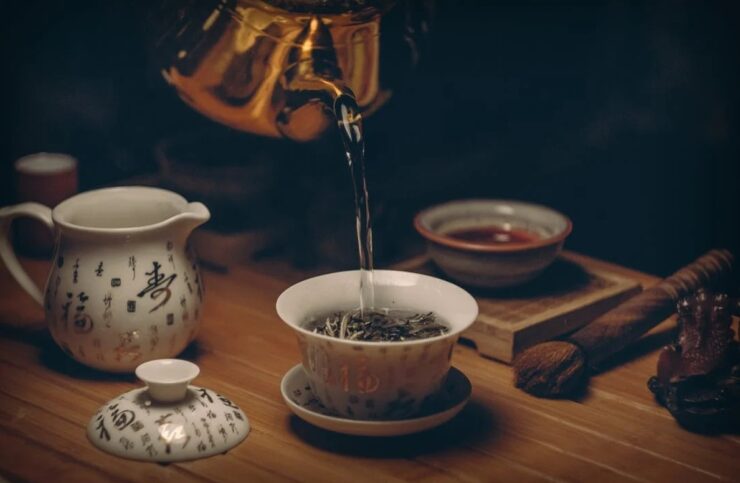
Among all of the items people found out about, it is the hot beverage we now know as tea that captured the minds, hearts, and taste buds of those who never knew it existed. When Europeans found out about India and its tea culture, nothing was the same ever again. Fast forward to the modern world and tea is arguably the most well-known drink in the world, or at least on par with coffee. Everyone drinks it, there are numerous types of tea, it can be drunk hot and cold, and used in other types of drinks.
But what separates good quality tea from that which is bad in quality? Or rather, how can you tell if the tea you are drinking is organic or not? There is a lot to know about this special drink as there is a whole science behind it, as well as numerous facts to get familiar with. In this article we explore the world of organic tea and bring to you the knowledge on how to tell it apart from conventional varieties. If you want to learn more about this, make sure to check out melmas.at.
What is Organic Tea Anyway?
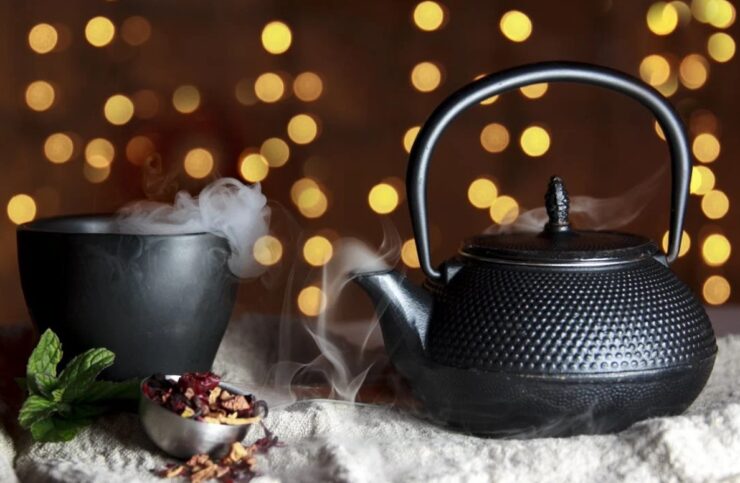
Before talking about how to distinguish it from regular tea, you first have to know what organic tea implies. Is it just about quality or is there something more to it, something deeper? Well, a little bit of both actually. Before modern forms of agriculture came to be, people had already been growing tea for thousands of years. Before the land was polluted and before GMO products were invented, people only had their wit, tools, and knowledge. They grew it naturally, without adding anything to the soil, to the seeds, and without any unconventional practices. This is exactly what organic means. In the olden days, all people had was organic.
In modern terms, organic implies growing according to the principles that IFOAM and USDA set in Europe and the USA, respectively, as well as many organizations in other countries. Firstly, the growing of organic products needs to sustain and enhance healthy soil, plants, and animals. Next, it needs to be based on living ecological systems, and protect the health, well-being, and environment of both current and future generations. Most importantly, and what many people instantly connect with organic growth, the land has to be free of chemicals, herbicides, pesticides, and fungicides for three years before organic growing can be done on it. No GMO or engineered particles are allowed in organic products. Organic foods tend to have between 18% and 70% more antioxidants than non-organic varieties, meaning organic tea is in theory a bit healthier.
1. Look for Labels
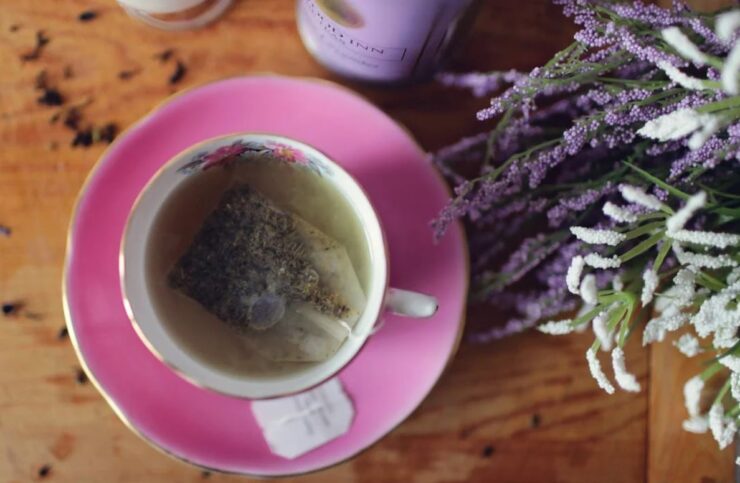
The easiest thing you can do when determining whether or not the tea you grabbed off the store shelf is organic is not is to check the packaging for the right logo. If the tea is indeed organic, it will say so on the packaging. There are many different types of images and lettering that can tell you this, from leaves, and animals, to ‘organic’ or ‘100% organic’ being written on it. However, just to be sure, you should look for labels of certification by the USDA, IFOAM, or your domestic organization that keeps tracks of this. Terms like ‘naturally grown, ‘animal welfare approved’, or ‘ECO friendly’ should also be a good sign. Some brands use ‘fair trade’, ‘from farm to table’, and ‘raw food’ too.
2. It Should Come from Small, Independent Plantations
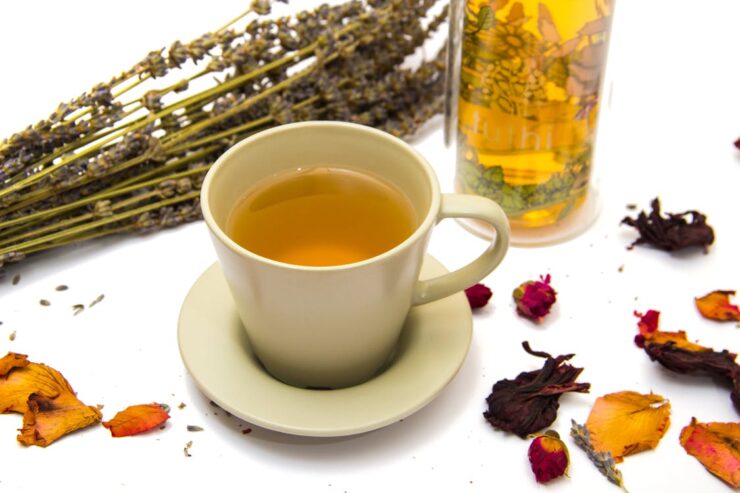
Growing food organically is expensive and it takes a lot of time and effort. This means that it cannot be an industry like conventional tea is. There is a lot of care and dedication devoted to every batch of organic products, which is the main reason why it is on average more expensive than non-organic. Small scale farms and plantations promote biodiversity and they grow their tea in the best conditions for that specific type. They use biodynamic farming methods, allow the wildlife and flora to flourish alongside the tea, and promote a natural environment where the tea plant can grow as intended. Mass production is not prioritized like with large-scale, industrial tea production. If you pay attention to where the tea you are buying comes from, you will easily be able to spot the organic variety from the conventional.
3. More Potent Taste

Claiming that one tea tastes better than another is not something that can be claimed with 100% accuracy. In truth, it greatly depends on the area, the amount of tea you put in the cup, and even on your taste buds. However, on average, most organic teas have a truer flavor to them and that often means more bitterness but also more potency. Non-organic tea can have chemicals and fertilizers in them that influence the flavor, as well as the color and the scent. Despite many non-organic teams being considered tastier than their organic counterparts, they are still not grown as they should be. If you care soley about taste, you can drink whatever you want. However, most people prefer quality over artificial traits so they go for organic and then add honey, lemon, or milk to enhance the taste. It is about what the true tea plant grown in the best conditions available does for your body, and not just about a tasty beverage in the afternoon.

